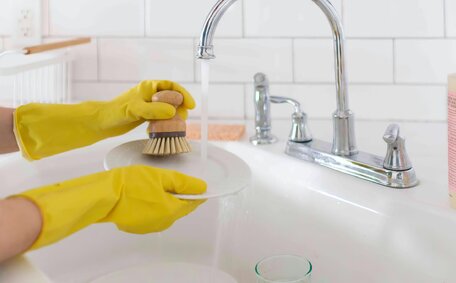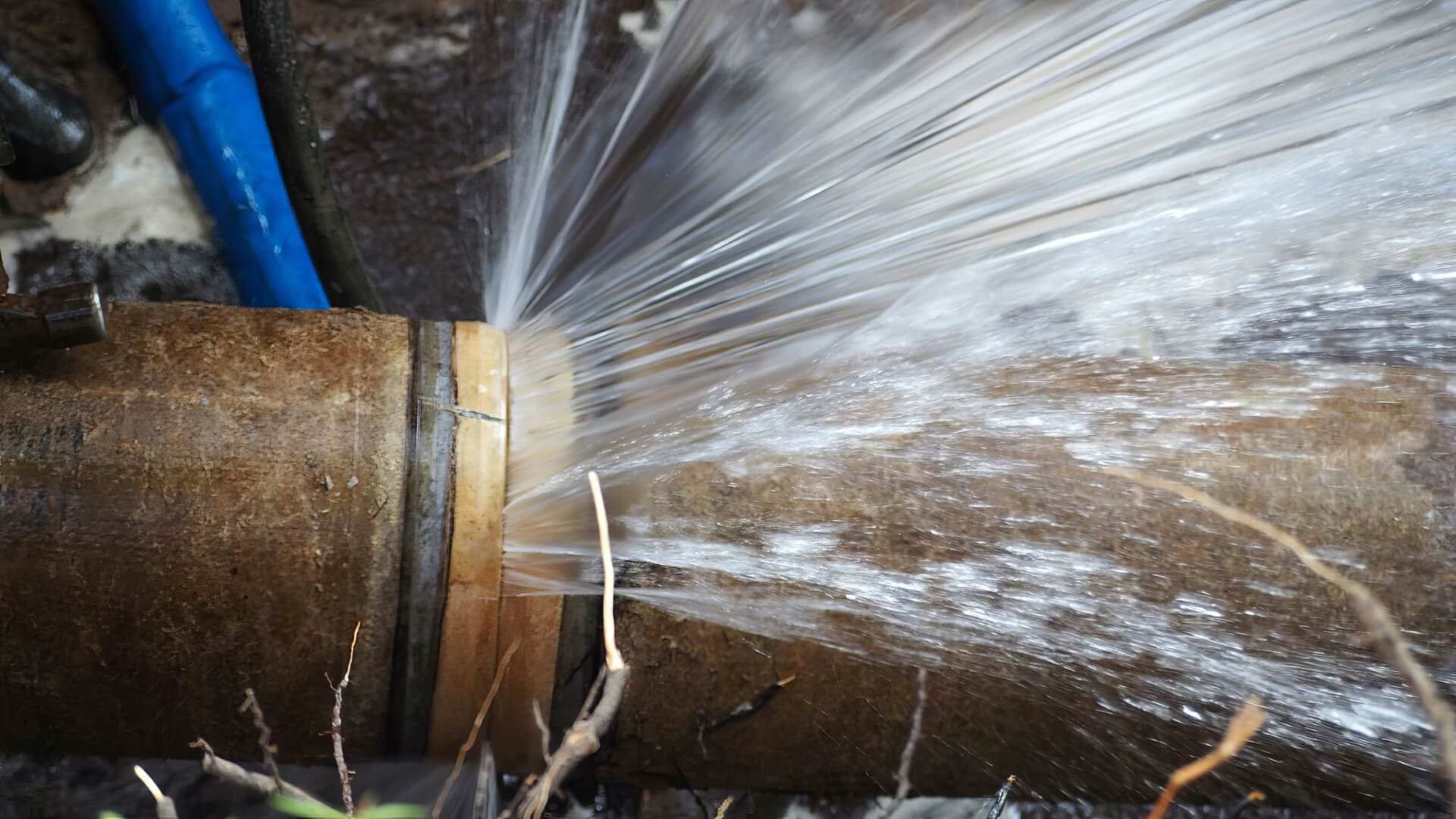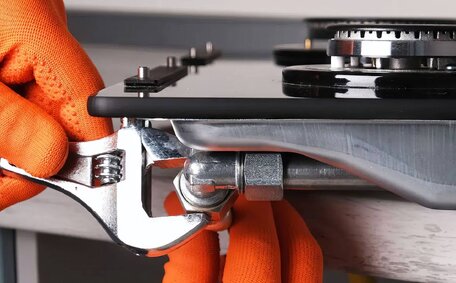The Benefits of Regular Plumbing Inspections
Regular plumbing inspections are essential for early detection of issues, avoiding expensive repairs. Swift identification and resolution of leaks, blockages, and faulty fixtures through inspections can prevent severe issues and save homeowners significant costs associated with emergency repairs.
Here are some key benefits of regular inspections:
- Detecting leaks and blockages - Inspections reliably identify these issues using advanced leak detection methods and drain camera technology.
- Avoid water damage - Finding and fixing minor leaks prevents water seeping into walls and floors, stopping extensive damage.
- Extending system lifespan - Early issue detection and maintenance keep your plumbing in optimal condition, preventing severe problems like burst pipes and enhancing system longevity.
- Maintain the most efficient water use - Inspections ensure all fixtures, and your pipes water systems, use resources effectively, reducing waste and utility bills.
- Confirm safety - Checks determine your plumbing meets all codes and standards, identifying risks from leaking gas lines or faulty water heater units.
- Reduce water heater costs not just through repairs – resolving small problems is cost-effective compared to full system replacements post-failure.
A comprehensive home plumbing inspection every 1-3 years is a smart investment for homeowners. Detailed, regular inspection reports help prevent costly emergency repairs, maintaining your home’s plumbing integrity by tackling problems promptly.
What to Expect During an Inspection
When it comes to an inspection, a professional plumber will thoroughly assess all elements such as pipes, fixtures, and fittings in your home’s plumbing system. This includes:
- Water system - Checking for leaks, corrosion, and blockages in your drainage and gas pipes, among others.
- Fixtures - Assessing your faucets, sinks, toilets, showers, and baths for integrity issues, leaks, efficiency, and performance.
- Drainage - Conducting an indepth inspection of drains, visually assessing underground sewer and stormwater systems.
- Water Pressure - Testing water flow and pressure from fixtures to detect blockages.
A plumbing inspection provides peace of mind by uncovering potential issues and verifying your system’s reliability. It can also identify issues within your home’s plumbing system to address before they cause water damage or become dangerous and expensive emergencies.
Preventing Expensive Emergency Repairs
Overlooking minor issues in your plumbing can lead to costly emergency repairs if you’re thinking of deferring action until problems intensify. Even seemingly trivial leaks, if ignored, can escalate into major issues such as the improper management of human waste. Persistent dripping can result in structural water damage, leading to saturation and decay.
Significant costs arise when replacing walls or floors damaged by foreign objects or improper use of chemical drain cleaners. Burst pipes, toilet waste blockages, or sudden water heater failures demonstrate that DIY solutions are often inadequate.
This underscores the value of routine inspections for your home’s plumbing, to identify signs of damage or wear beyond obvious issues that could worsen. Fixing a minor leak from a tap washer or joint seal early may only cost $150-300. However, Neglecting such issues could lead to leaks within structural cavities, potentially as harmful as waste overflowing a toilet, with costs spiral before they become exorbitant.
Preventative plumbing maintenance can avert costly repairs in the future. Our thorough inspections are essential to identify issues early, maintain real estate, and avoid emergency repairs.
Protecting Your Home and Health
Regular checks on gutters, downpipes, and other plumbing fixtures can prevent health hazards such as mold mildew growth and pest infestation. Neglected minor leaks in gutters and downpipes can lead to moisture buildup, creating ideal conditions for mold growth.
Mould can trigger allergies and worsen respiratory conditions such as asthma. In severe cases, certain toxic black moulds in damp water systems can even pose dangerous health risks. Acting swiftly to get back in control of minor leaks prevents conditions suitable for mould growth.
Inspections also protect your home’s physical structure. Undetected water leaks can cause rot and decay in wooden elements like wall frames, floor joists, and roof rafters. Identifying compromised areas early allows for more affordable repairs before major failures.
Ensuring your toilet is secure prevents seepage into walls and foundations, avoiding unnoticed decay. Promptly addressing issues also reduces the need for disruptive repairs if water damage worsens.
By maintaining your plumbing proactively, our plumbing team helps prevent leaks creating health hazards or compromising your most valuable asset - your home.
Using Technology to Locate Problems
Plumbing professionals use inspection cameras and other advanced technologies to accurately detect issues in hidden underground pipes. This includes CCTV drain cameras that a plumber can use to provide detailed video footage, highlighting the exact location of blockages within sewer lines.
Technicians can evaluate your sewer pipes and sewer stormwater infrastructure by guiding a camera inspection down line during the assessment. The camera’s feed gives plumbers a detailed view, clearly showing problems like tree roots that may jeopardize the sewer line.
With tools like drain cameras and plumbing snakes, the exact location of hidden pipe issues can be pinpointed. Inspectors can now identify the precise area needing repair, eliminating random excavation.
Cutting-edge leak detection and plumbing maintenance tools allow for precise identification of issues. Advanced equipment can detect hidden dampness in walls to locate leaks, allowing for accurate repairs. Employing this precise approach can save you from pricey repairs later on, as it prevents misidentifying the actual leak sites.
Choosing a Qualified Professional
Choosing a licensed plumber for your inspection means selecting a qualified, experienced professional well-versed in local regulations. Consider these tips when selecting your plumbing inspector:
- Licensing - Ensure your plumbing inspector is fully licensed, with current plumbing, electrical, and gas fitting licenses. This certification ensures their ability to perform comprehensive building inspections.
- Check Reviews - Look online for customer feedback and ratings. High ratings over many reviews indicate service quality worth the asking price.
- Ask About Process - A thorough inspector should detail what the inspection involves e.g. leak tests, pipework checks, drain camera etc.
- Experience - Choose an inspector with extensive experience specifically in plumbing inspections. Newer inspectors may miss warning signs.
- Ask About Equipment - Well-equipped inspectors use the latest tools like sophisticated inspection cameras. This shows investment in providing accurate inspections.
- Updated Knowledge - Opt for an inspector familiar with the latest codes and standards to determine compliance.
- Local Familiarity - Those operating locally know common issues in the area and what to look out for.
Contact Chatswood Coast Plumbing for a meticulous inspection that meets the standards for your property and plumbing requirements. With over 25 years being a locally owned and operated business dedicated to helping locals achieve their dream homes, we’re well-suited to safeguard the plumbing of your new home. Call us today to schedule your comprehensive prepurchase plumbing inspection.






